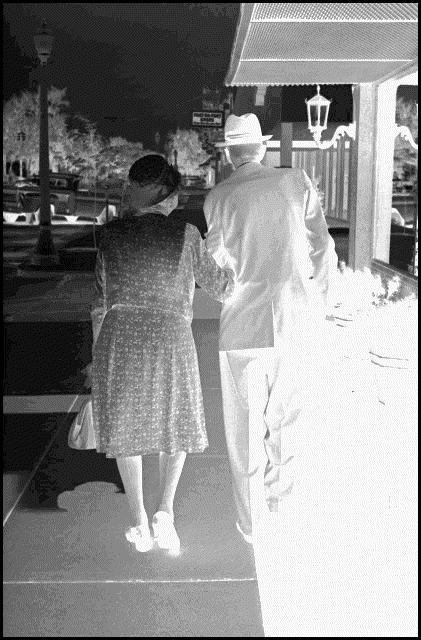Stories
Floyd Skloot
(Tupelo Press)

Freshness probably didn't make much difference in those days for when they were brought into the kitchen they were cooked to death (squash mush, runny carrots) or, if lettuce, served with a cream dressing which overwhelmed any flavors the lettuces might have had for their garden-to-you quality.
Dad also brought in the kohlrabi for my mother to cook. Kohlrabi is a big boll that grows an inch or two above the ground, with little dabbly leaves growing out of it. As she had no idea what a kohlrabi was and she hated cooking anyway (boiled beef, mashed potatoes with lumps, Brown Betty for dessert) she ripped off the leaves to boil and threw away the boll. My father was fit to be tied. When she finally got it right, we wondered what the fuss was all about. Kohlrabi has the flavor of wash and the consistency of boiled moosh.
The first of Skloot's seven stories are about geezers and Alzheimer's and memory loss and thinking you're there instead of here and aches and pains and forgetting words and thinking the social worker is your daughter, the janitor your nephew. And eating kohlrabi soup there in the nursing home.
All this could be pretty depressing but Skloot has a knack for making it interesting, different, sad at times, maddening at times, beautiful --- in a wistful sort of way. In "The Wanderer" Norman Hertz wanders out of that place "where they had been confining him" and right off into the hills there in Portland. The social worker figures out it had to be the fault of the back door (they had been meaning to fix it); Sonia, the aide who was supposed to be watching over that part of the nursing home, bursts into tears.
And for Hertz being in the woody areas is so much like it was back in Poland when the Nazis were hunting him: he even finds a hut on the trail to hide in because he knows the Einsatzgruppen is somewhere on his trail.
Meantime, back at the old folk's home (do they still call them that?) Norm's son --- "looks enough like the old man to confuse them at first. He's back!" --- but it's not him.
- They saw soon enough that it was the developer Aaron Hertz and he seemed to be expanding as they watched, reddening, trembling.
"How the fuck do you lose a demented old man?"
A good short story writer like old Hertz has to take a lot of short cuts, with some agility. Skloot is so good that you could just buy this for the first seven stories and their wonderful take on old age, dementia, being stuck away from the family.
Thus we get to follow Norman through the streets of Portland hoping he will elude the APB that's gone out on radio and television. We even hope that Norman's son Aaron will pop Dan the administrator once in the kisser for being such a worm and doing so little to care for his charges. Kohlrabi soup!
The title story is one of the best of the lot. Ike Rubin calls the soup "Purée of Vomit Chowder." He's a crabby old bastard, but he has learned to get by, at eighty-nine, "on a combination of memory (fading), guile (holding steady), and patience (decreasing)." Ike learns from his brother-in-law Morris Weiss's law firm that he is eligible to collect money from the Humanitarian Fund for the Victims of the Holocaust, and they have sent Morris to Switzerland to negotiate. Ike thinks,
- They send an octogenarian to Switzerland to talk to Nazi collaborators? They send a pussycat like Morris Weiss to deal with wolves and jackal-asses?
"Cream of Kohlrabi" turns sad ... brilliantly sad ... at the very end, the kind of woe that makes one set down the book for awhile to let it sink in. And like all good short stories, this one has moments of telling detail (Ike has trouble remembering what a door-knob is called; he calls "jackasses" "jackal-asses; after all he has gone through, he tells Rosa Martinez who works at the nursing home that when he looks out the window, "You know what I see, Rosa? I see a haze, mostly. The color of bones, or maybe ashes. Some movement here and there, but mostly haze."
These stories of half-crazed old geezers waiting to die stay with you. They are often not sure of their words, not sure who they are, not even who they were. But, as Ike has it, when he asks lovely Rosa to sit next to him, and she actually does it, he thinks that he must really look bad. "The pretty ones never sit beside you unless you're on death's door."